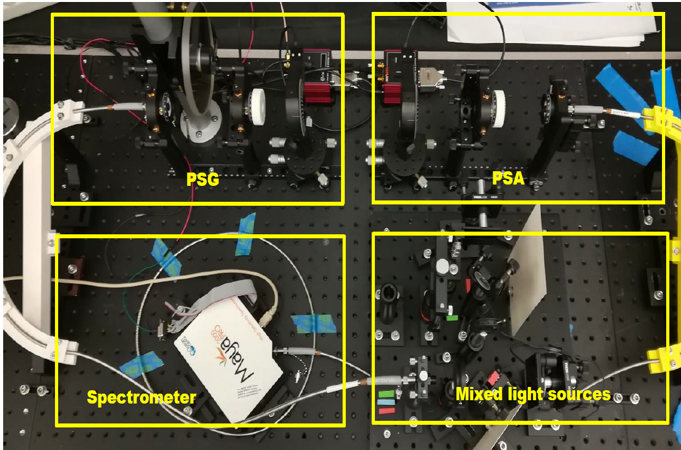Intelligent optical characterization for nano-manufacturing
-
High-performance and noninvasive nanoscale metrology and inspection play a significant role in many areas of nanotechnologies, e.g., in-line process control for high-volume electronic manufacturing, real-time biomedical detection, and in-situ material characterization for scientific research, among others. Optical measurement techniques can characterize nanostructures and detect nanoscale defects in a more efficient and non-destructive manner. Moreover, it can measure complex multi-layer and buried structures as well as reconstruct multiple parameters simultaneously. These optical instruments integrate opto-mechatronic design, physical modeling, computational imaging, and machine learning to achieve high-speed, high precision, and smart measurement. Our research and development address several themes. They are, but not limited to:
1) High precision optical metrology instrumentation
2) Computational electromagnetics for nanoscale structure modeling
3) High-performance signal processing
4) Intelligent computation for the optical inverse problem
5) Novel optical component design
-
6) Super-resolution imaging
-
Publications
2019

Kai Meng; Bo Jiang; Christos D Samolis; Mohamad Alrished; Kamal Youcef-Toumi
Unevenly spaced continuous measurement approach for dual rotating--retarder Mueller matrix ellipsometry Journal Article
In: Opt. Express, vol. 27, no. 10, pp. 14736–14753, 2019, ISSN: 1094-4087.
@article{MRL_AFM_Dual_Rotating_Retarder_Mueller,
title = {Unevenly spaced continuous measurement approach for dual rotating--retarder Mueller matrix ellipsometry},
author = {Kai Meng and Bo Jiang and Christos D Samolis and Mohamad Alrished and Kamal Youcef-Toumi},
url = {http://www.opticsexpress.org/abstract.cfm?URI=oe-27-10-14736},
doi = {10.1364/OE.27.014736},
issn = {1094-4087},
year = {2019},
date = {2019-05-01},
journal = {Opt. Express},
volume = {27},
number = {10},
pages = {14736--14753},
publisher = {OSA},
abstract = {In order to efficiently extract the sample Mueller matrix by dual rotating–retarder ellipsometry, it is critical for the data reduction technique to achieve a minimal data processing burden while considering the ease of retarder control. In this paper, we propose an unevenly spaced sampling strategy to reach a globally optimal measurement matrix with minimum sampling points for continuous measurements. Taking into account the robustness to both systematic errors and detection noise, we develop multi-objective optimization models to identify the optimal unevenly spaced sampling points. A combined global search algorithm based on the multi-objective genetic algorithm is subsequently designed to solve our model. Finally, simulations and experiments are conducted to validate our approach as well as to provide near-optimal schemes for different design scenarios. The results demonstrate that significant improvement on error immunity performance can be achieved by applying an unevenly sampled measurement strategy compared to an evenly sampled one for our ellipsometer scenario.},
keywords = {},
pubstate = {published},
tppubtype = {article}
}
